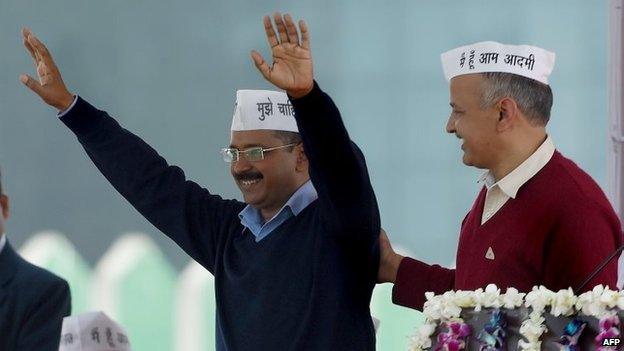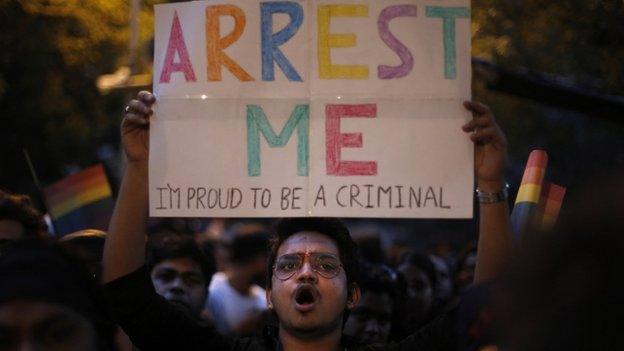Indian media: Kejriwal says no water privilege for 'Delhi's VIPs'
- Published

Arvind Kejriwal's popularity helped propel his party to a landslide poll victory
Delhi Chief Minster Arvind Kejriwal has said there will no discrimination between ordinary citizens and VIPs if the government decides to cut water supplies.
Delhi is facing a water shortage as temperature rises in the city. In the past, the government has reduced water supply to ordinary citizens while sparing the "VIP areas" which house ministers, bureaucrats and the elite.
But Mr Kejriwal says the city's VIPs will not be spared if the water crisis deepens this summer.
"There is no reason for only the common man to suffer a water crisis. In future if there is a shortage, ensure that everyone, including VIPs, have to bear the brunt of it. The only people to be excluded are the president, prime minister, hospitals and embassies," The Times of India, external quotes him as saying.
Mr Kejriwal's Aam Aadmi Party (Common Man's Party) swept Delhi assembly elections earlier in the year, winning 67 out of 70 seats.
Putting an end to corruption and Delhi's VIP culture were some of his main poll promises.

India votes against gay rights

Activists have been demanding that gay sex is de-criminalised in India
Elsewhere, India has voted against a UN resolution to extend staff benefits to same-sex couples working for the organisation, The Indian Express, external reports.
India joined Russia-led opposition to challenge the UN's move, but faced defeat in the end.
The UN Budget Committee recognised gay spouses, regardless of whether or not gay marriage is legal in their country of origin.
Previously, the UN followed national legislation on the issue.
The vote went 80 to 43 against Russia's resolution, which had backing from China, India and Muslim countries.
India's move has come against the backdrop of growing calls in the country to decriminalise gay sex.
BBC Monitoring, external reports and analyses news from TV, radio, web and print media around the world. You can follow BBC Monitoring on Twitter , externaland Facebook, external.